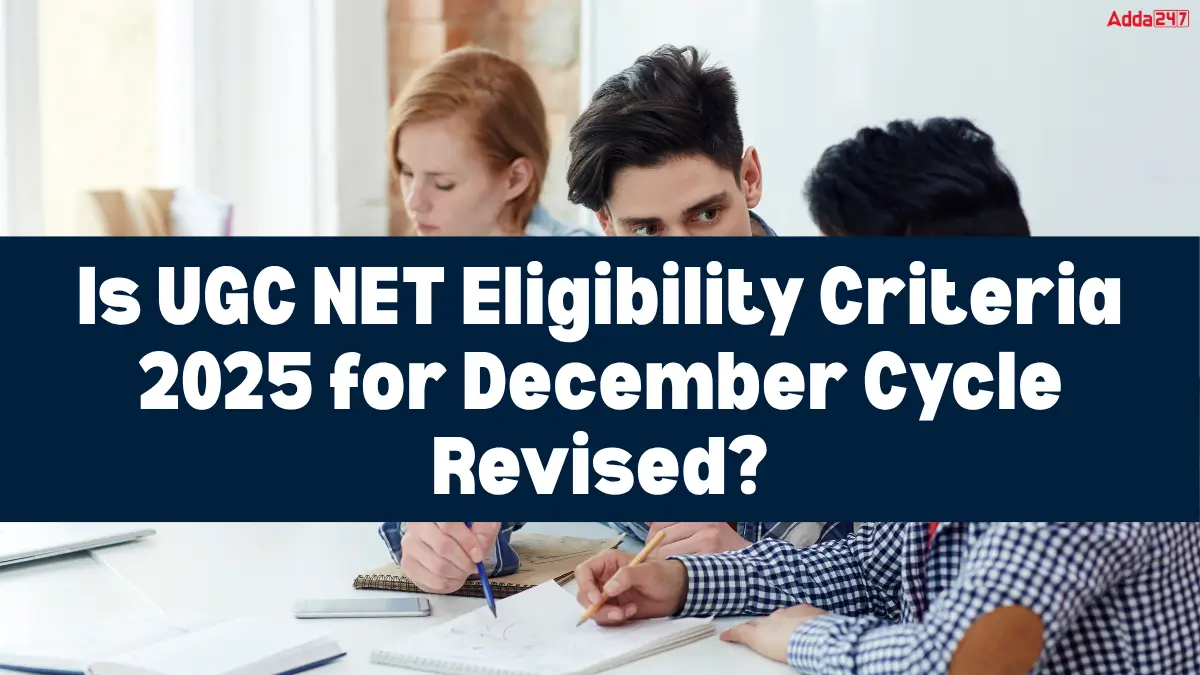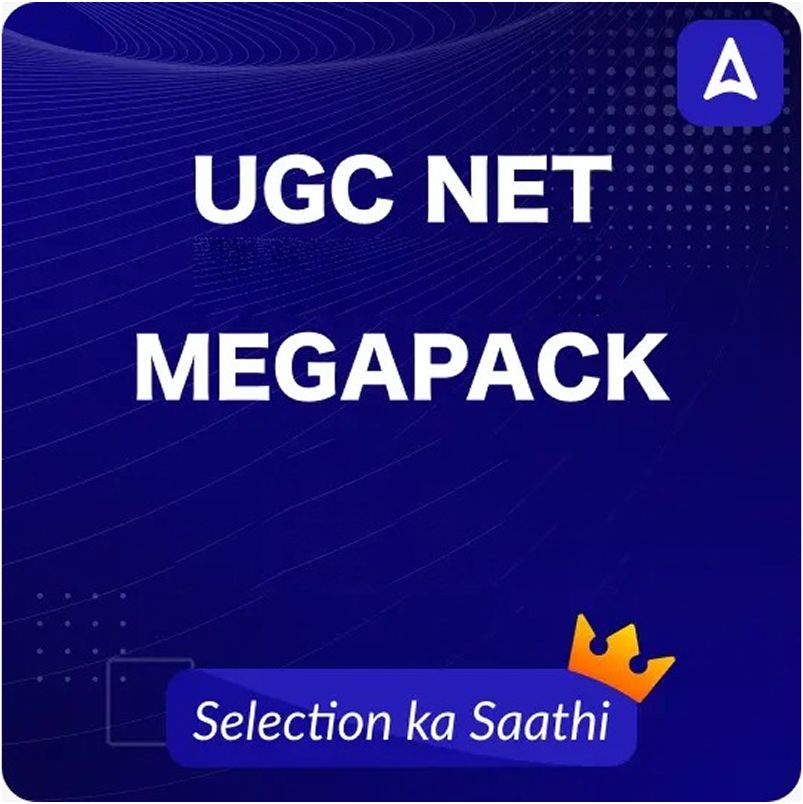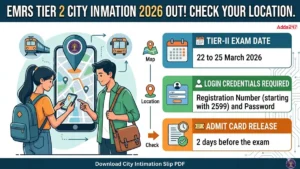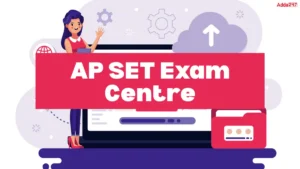Table of Contents
The UGC NET 2025 December Cycle Eligibility Criteria has become a key topic of discussion among aspirants following a legal challenge regarding reservation benefits for the Economically Weaker Section (EWS) candidates. The issue has gained national attention after a petition filed in the Rajasthan High Court questioned the absence of relaxation in marks and age limit for EWS candidates.
This development has prompted widespread debate on whether the UGC NET eligibility rules are fair and in alignment with the constitutional provisions for reservation.
UGC NET 2025: Overview
The University Grants Commission National Eligibility Test (UGC NET), conducted by the National Testing Agency (NTA), determines eligibility for the posts of Assistant Professor and Junior Research Fellowship (JRF) in Indian universities and colleges.
Every year, lakhs of candidates apply for the exam, and even minor changes in eligibility criteria can have a major impact on aspirants’ preparation and eligibility status. The current debate centers on the non-inclusion of relaxation benefits for EWS candidates.
Why UGC NET Eligibility Criteria 2025 Is Being Debated
According to the UGC NET December 2025 Information Bulletin, the existing eligibility norms state that:
- Candidates belonging to UR (General) and EWS categories must have at least 55% marks in their Master’s degree.
- Candidates from OBC (Non-Creamy Layer), SC, ST, PwD, and Third Gender categories must have 50% marks.
- The upper age limit for JRF is 30 years, with relaxation available to OBC, SC, ST, PwD, women, and third gender candidates—but not for EWS.
This has raised concerns among aspirants and legal experts about whether the EWS category is being treated equitably, as it is recognized as a reserved category under the 103rd Constitutional Amendment Act (2019).
Rajasthan High Court Petition on UGC NET 2025
The issue came to light when Advocate Lakshmikant Malpura, an EWS candidate who scored 53% in his Master’s degree, filed a petition in the Rajasthan High Court (Jaipur Bench).
He argued that EWS candidates deserve the same 5% relaxation in qualifying marks as other reserved categories such as OBC, SC, and ST. The High Court took note of his plea and issued notices to the University Grants Commission (UGC) and the Central Government, seeking clarification on why EWS candidates are being treated on par with General category applicants.
The court has allowed the petitioner to submit his application for the UGC NET 2025 examination, ensuring his participation until the matter is resolved. The outcome of this case could potentially alter the eligibility norms for upcoming UGC NET cycles.
Key Highlights of the Issue
| Aspect | Details |
|---|---|
| Court Action | Rajasthan High Court issues notice to Central Government and UGC |
| Petitioner | Advocate Lakshmikant Malpura (EWS category) |
| Core Issue | EWS candidates not receiving 5% relaxation in qualifying marks |
| Exam Status | UGC NET December exam application still open |
| Marks Criteria | UR/EWS – 55%; Reserved Categories – 50% |
| Concern | EWS candidates treated as General category without relaxation |
| Significance | May redefine eligibility for upcoming UGC NET cycles |
Legal and Policy Implications
The Rajasthan High Court case on EWS relaxation in UGC NET could bring major changes to how reservation rules are applied in national exams. The final decision may impact not only EWS candidates but also future recruitment and eligibility policies across India.
- EWS Reservation Needs Proper Implementation: Although EWS reservation is approved by law, it’s not being applied equally in exams like UGC NET. The court’s action might help ensure that all exams follow a uniform rule for EWS candidates.
- EWS Students Losing Out on Eligibility: Candidates scoring between 50%-55% are missing eligibility because they don’t get the same 5% relaxation as OBC, SC, and ST categories. This affects their confidence and future opportunities.
- Unclear Rules Causing Confusion: EWS candidates are treated as reserved for quota but general for cutoffs. This unclear policy creates confusion and needs immediate correction by UGC and the government.
- Court Ensuring Fairness and Equality: The High Court is reviewing whether EWS candidates are being treated fairly. Its decision could make sure reservation benefits are used in the right way for all students.
- Possible Change in Future UGC NET Rules: If the verdict favors EWS candidates, UGC may revise its eligibility criteria before the June 2026 cycle, giving EWS students 5% relaxation in marks and possible age benefits.
Current UGC NET Eligibility Criteria 2025
| Category | Minimum Marks in Master’s Degree | Age Limit for JRF | Relaxation Available |
|---|---|---|---|
| UR (General) | 55% | 30 years | No |
| EWS | 55% | 30 years | No |
| OBC (Non-Creamy Layer) | 50% | 33 years (+3 years) | Yes |
| SC/ST/PwD/Third Gender/Women | 50% | 35 years (+5 years) | Yes |
What Students Should Do Now
- Follow current eligibility norms while applying for the UGC NET December 2025 cycle, as no official revision has yet been announced.
- Monitor updates from the UGC, NTA, and verified educational portals for court developments.
- Focus on preparation using available study resources rather than waiting for potential changes.
- Plan ahead for possible eligibility relaxations that might be introduced before the June 2026 cycle.
Is UGC NET Eligibility Criteria 2025 Revised Yet?
As of now, there is no official change in the UGC NET Eligibility Criteria 2025 for the December cycle. The existing rules remain unchanged and applicable as per the official Information Bulletin. Candidates should follow these current norms when applying for the December 2025 exam. Any modification will only come after a UGC notification following the High Court’s verdict.




 EMRS Tier 2 Exam City Intimation Slip 20...
EMRS Tier 2 Exam City Intimation Slip 20...
 38,800 Teachers to Be Recruited for EMRS...
38,800 Teachers to Be Recruited for EMRS...
 AP SET Exam Centre 2026, District and Lo...
AP SET Exam Centre 2026, District and Lo...













